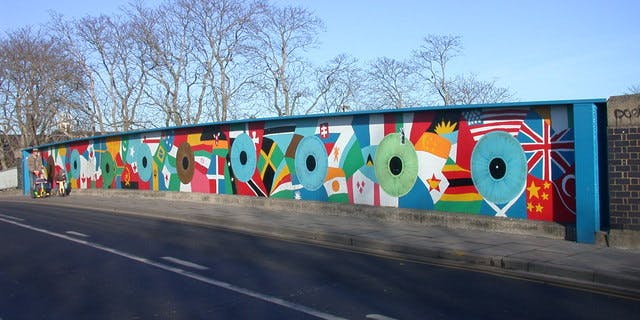
Extinction Rebellion Cambridge (XRC) and Extinction Rebellion Youth Cambridge (XRYC) have backed plans unveiled by the authorities to aid active travel in Cambridgeshire.
The groups say these “impressive plans” will provide a huge boost for public health and wellbeing in the county and have urged their implementation as soon as possible.
The plans include the closure of Mill Road Bridge to private motor vehicles, a step that many residents have requested for some time. Currently, it is impossible to socially distance while walking or cycling down the road, especially once on the bridge, yet doing so is crucial to containing the coronavirus pandemic. Lockdown cannot be eased safely without taking extra measures such as this.
XRC and XRYC recognise some local traders are not in favour, and would urge the authorities to work with them to ensure these changes do not harm local businesses. We are confident this can be achieved; research shows that local businesses more often than not benefit from pedestrianisation as it increases footfall. We therefore believe the full pedestrianisation of Mill Road would, in fact, be the most beneficial change for businesses, residents, and those who use wheelchairs or mobility scooters, as it would create much more space to move. An exception to the car ban for disabled drivers entering Mill Road would be a sensible addition to the plan; indeed the closure itself will help disabled drivers as there will be far fewer competing cars. Safely easing lockdown will also bring long-term resilience to business on the road - if there’s a second peak in coronavirus cases, these businesses will have to close for a second prolonged period.
Once in a generation opportunity
The coronavirus crisis is a once-in-a-generation opportunity to rethink and correct the biggest mistake of 20th century urban planning: the takeover of our cities by the private car. In the UK this mistake has led to tens of thousands of needless deaths from air pollution exposure, as well as the deaths of countless cyclists. In Cambridge, the air in traffic hotspots is often illegally polluted, and in many cases these hotspots occur close to schools. Air pollution is linked to a range of ill health effects in children, including cognitive impairment. There is no excuse for knowingly damaging children’s health, and we are pleased action is being taken.
We note that in a number of places the plans remain only to consider or investigate changes to road layouts, with no specified actions identified. Councillors must not squander this opportunity to implement the broadest range of changes and lock in new modes of travel for the future.
Carbon dioxide levels have fallen sharply around the world as a result of the crisis, yet are now bouncing back and in some cases have exceeded pre lock-down levels. A study this weekend said that more than 20% of people are planning on driving more than they did before lockdown to avoid public transport and the risk of infection. And a stark report last week by the International Energy Agency said the world has just six months to change the course of the climate crisis from irreversible disaster and prevent a post-lockdown rebound in emissions. Tackling transport emissions and encouraging non-car travel is critical to shifting the future trajectory of emissions.
Extinction Rebellion campaigner Nathan Williams said: “We are really pleased to see councillors and officers stepping up. The list of planned changes is impressive and when implemented will be a big step forward for Cambridgeshire. We need these changes desperately. Without this sort of wide scale change to road infrastructure, we risk walking into a pollution and congestion nightmare that we won’t be able to get out of. Transport is the largest contributor to emissions in the county and growing. Changes to the way we travel are a critical investment in our future and for the next generation. If we can lock in these changes and prevent pollution and congestion from going back to normal – or worse – it would be a positive legacy to come out of an incredibly difficult and upsetting time for many people.”
